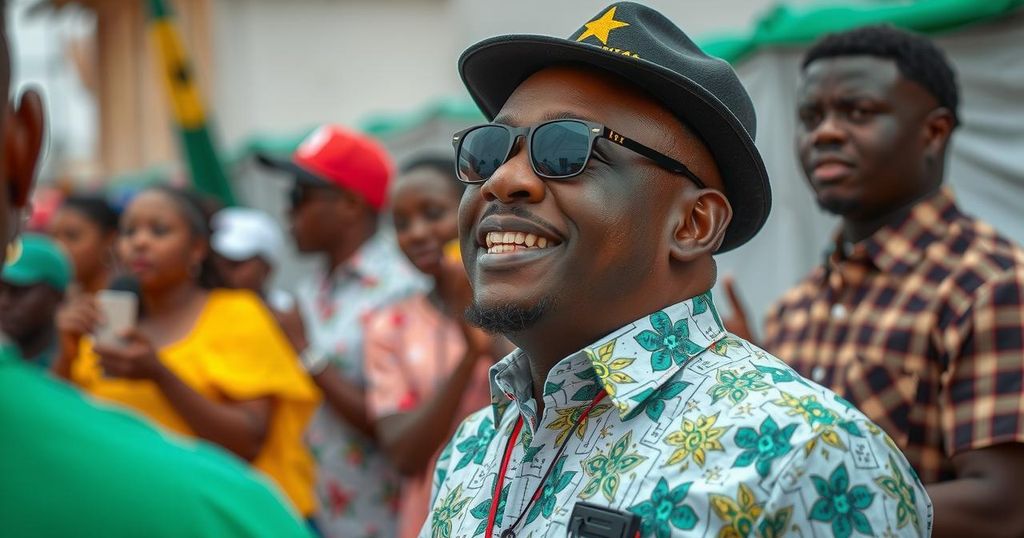Accra Residents Anticipate Closely Contested Presidential Election in Ghana

Residents of Accra’s Odododiodio district are gearing up for Ghana’s presidential election on December 7, 2024, focusing on candidates Mahamudu Bawumia of the NPP and John Mahama of the NDC. Economic concerns, such as inflation and unemployment, dominate voter discussions as historical party loyalties intersect with current frustrations. This election is poised to be highly competitive, reflecting the deep divides in the electorate and the significance of Greater Accra in determining the outcome.
As Ghana approaches its presidential election on December 7, 2024, residents of Accra’s Odododiodio district are focused on the two principal candidates: Mahamudu Bawumia of the ruling New Patriotic Party (NPP) and former president John Mahama of the opposition National Democratic Congress (NDC). This district, known for its competitive electoral history, narrowly favored Mahama in the last election despite NPP winning the presidency. Voter sentiments are heavily influenced by pressing economic concerns, including significant inflation, high unemployment, and rising living costs, particularly following Ghana’s recent economic turmoil and subsequent debt default.
The sentiment among voters reflects a division, with many traditional NDC supporters, such as Emmalyn Asiamah, advocating for change, while NPP sympathizers like Samuel Laryea remain optimistic about their candidate’s potential to improve the economy. Bawumia has distanced himself from the government’s economic challenges by attributing them to external factors, while Mahama proposes initiatives to create more job opportunities. The outcome in Greater Accra, the most populous voting region, is critical, as generational affiliations within families further complicate electoral choices. As election day approaches, both parties are intensifying their campaigns, reflecting the close nature of the race, as noted by political strategist Tutu Boahen.
In summary, the upcoming presidential election in Ghana is marked by intense competition between Mahamudu Bawumia and John Mahama, with Accra’s electorate acutely aware of economic issues. This election, particularly in districts like Odododiodio, will thus hinge significantly upon the voters’ economic priorities and historical party loyalties, suggesting a potentially contentious electoral outcome.
Ghana’s political landscape has been characterized by a two-party system since the return to multi-party democracy in 1992, with power alternating primarily between the NPP and NDC. The electoral dynamics in Accra, particularly in densely populated districts like Odododiodio, illustrate the competitive nature of Ghanaian politics, where elections can be decided by a narrow voter margin. Economic issues are paramount in the current political discourse, exacerbated by Ghana’s recent economic difficulties, including a debt default and high inflation rates, which have led citizens to question past governance and seek effective leadership in addressing these challenges. The election is viewed as an opportunity for voters to express their dissatisfaction with the current economic state and explore new attempts at governance through their preferred candidates.
In conclusion, the 2024 presidential election in Ghana represents a pivotal moment for Accra’s residents, who are deliberating between the incumbency of the NPP under Bawumia and the experience of former president Mahama of the NDC. The pressing economic challenges faced by the electorate serve as a critical backdrop to this tight race, influencing voter preferences across generational lines and reinforcing the need for effective governance. The outcome in Greater Accra will be significant, possibly determining the future direction of Ghana’s economic policies and political leadership.
Original Source: www.seychellesnewsagency.com






